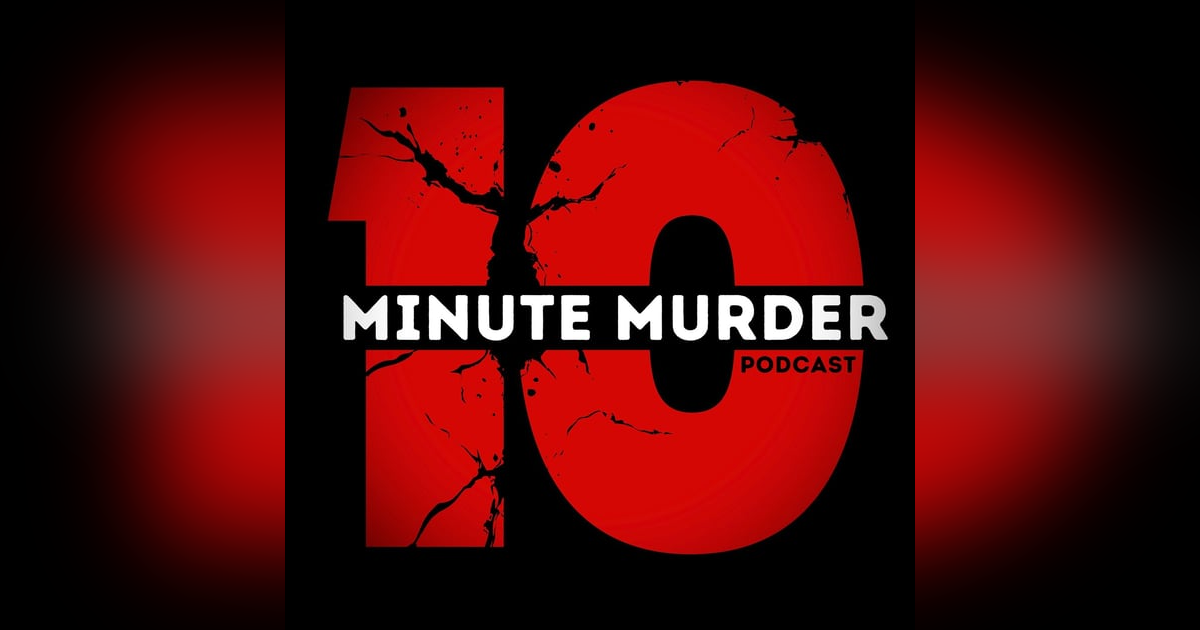Mark Twitchell: The Dexter Wannabe Who Took Method Acting Way Too Far
Mark Twitchell fancied himself a visionary, the kind of filmmaker who wasn’t afraid to explore the darker corners of human nature. The problem was, he didn’t stop at storytelling. His fascination with the macabre didn’t stay confined to scripts or low-budget sets; instead, it spilled into his reality with chilling consequences.
“I don’t remember the exact place and time I decided to become a serial killer, but I remember the sensation that hit me when I committed to the decision,” Twitchell would later write. “It was a rush of euphoria. I felt lighter, less stressed, if you will, at the freedom of the prospect.”
For Twitchell, this wasn’t just some grim fantasy. It was a declaration, a personal mission statement, and one he took disturbingly seriously. “Like anyone just starting out in a new skill, I had a bit of trial and error in the beginning of my misadventures,” he continued, as though murder were a hobby you picked up on weekends. “Allow me to start from the beginning, and I think you’ll see what I mean.”
The beginning, as it turns out, wasn’t just dark—it was downright deranged.
Dreams, Star Wars, and an Alarming Hobby
Growing up, Canadian Mark Twitchell dreamed of making movies. And, credit where it’s due, the guy was determined. He went to the Northern Alberta Institute of Technology to study Radio and Television Arts, which sounds legit. From there, he threw himself into filmmaking with the same enthusiasm as a high school drama kid with a budget. He made short films, wrote scripts, and even created a full-length Star Wars fan film starring Jeremy Bulloch—the guy who played Boba Fett. Because why not?
Professionally, Mark was hustling. But personally, the cracks were already showing. In 2001, he married Megan Casterella, but the marriage lasted about as long as a sitcom plot line—four years. After the split, Mark took his search for love online, turning to the booming world of internet chat rooms, because nothing screams “stable relationship” like lurking on forums in the early 2000s.
There, he met Jess. Things seemed to click, and soon, they were married. By 2007, they welcomed their daughter, Chloe, into the world. On the surface, it looked like Mark was finally balancing his personal life and his filmmaking aspirations. But—and this is a big but—beneath the suburban veneer, Mark was cooking up something much darker.
Cracks in the Mask
By 2008, Mark Twitchell’s life was unraveling faster than one of his half-baked movie scripts. His second marriage to Jess was in shambles. Counseling sessions had devolved into polite avoidance, and their shared home had turned into a roommate situation, complete with separate beds and conversations that probably revolved around whose turn it was to pick up their daughter, Chloe. The only semblance of stability was Mark’s job as a security salesman, which—surprise!—was as fictional as his filmmaking career.
For five months, Mark had been living a double life. Each morning, he kissed his wife and child goodbye and pretended to head off to work. In reality, he was clocking in at a rented garage, pouring all his energy into what he proudly called his latest “masterpiece”: House of Cards. And no, this wasn’t the Netflix show with creepy Kevin Spacey. This was Mark’s deeply unsettling DIY project—a film with a plot so uncomfortably close to his personal life it might as well have been a confessional.
The story revolved around a man who lies to his wife about going to the gym, only to use the time to have an affair. From there, things spiral into full-blown horror. The protagonist—masked in hockey gear for that extra touch of creepy anonymity—lures another man to a garage using a fake online dating profile. Then comes the grand finale: the protagonist murders his victim, dismembers the body, and hides the evidence. And just when you think it couldn’t get more on-the-nose, there’s a twist ending: the “writer” of this film turns out to be a real-life serial killer.
Mark wasn’t just playing with fire here—he was practically bathing in gasoline. This wasn’t just fiction for him; it was the blueprint for something far more sinister. Every scene, every line of dialogue, was a rehearsal for his descent into darkness. The line between fantasy and reality wasn’t just blurred—it was obliterated.
And that twist ending? Turns out, Mark wasn’t waiting for the credits to roll before bringing it to life.
Enter John Altinger: The Unknowing Victim
On October 10, 2008, John Altinger thought he was heading toward the start of something special. He’d been chatting with a woman named Jen online, and their connection seemed promising. The plan was to meet her at her place—well, her garage, technically—which raised a few eyebrows among his friends. They warned him it sounded sketchy, but John brushed off their concerns. He’d done his due diligence, or so he thought.
A few days later, those same friends received an email from John, saying he and Jen had hit it off so well that they’d spontaneously jetted off to her Costa Rican getaway. It was a dream scenario—except for one glaring problem: John’s passport, his clothes, and pretty much everything he owned were still at home.
Alarm bells ringing, his friends called the police. The investigation that followed led detectives straight to Mark Twitchell, the man behind the fake profile of “Jen.” What started as a missing person case quickly spiraled into something far more sinister.
The Dexter-Inspired “Set”
When investigators caught up with Mark Twitchell, he offered an explanation so absurd it almost deserved points for creativity: John had decided to sell him his truck for a laughable 40 Canadian dollars before skipping off to Costa Rica. But when police examined the truck, they found something that didn’t fit Mark’s neat little story—a staggering amount of blood. DNA confirmed it belonged to John Altinger.
That discovery led them to Mark’s rented garage, which he called his “film set” but looked more like a serial killer starter kit. The floor was lined with plastic sheeting, there was a long table stacked with cleaning supplies, and—predictably—there was more blood. Mark, sticking to his script, insisted it was all part of his House of Cards movie.
Then came the laptop.
Investigators unearthed a deleted file with the title Serial Killer Confessions, which, as it turns out, was not an attempt at subtlety. The opening line? “This story is based on true events... This is my story of my progression into becoming a serial killer.”
Subtlety was clearly not his strong suit.
The document laid out a step-by-step plan: create a fake dating profile, lure a victim to the garage, kill them, and dispose of the remains in a burn barrel. That last detail was backed up by evidence—investigators found a barrel with charred human remains near the garage.
Still, Mark stuck to his defense, claiming it was all just an elaborate, misunderstood work of fiction. But with mounting evidence and a confession that read like a how-to guide, Mark’s claims were as thin as the plastic lining his garage floor.
The One Who Got Away
The Serial Killer Confessions document mentioned a prior attempt at murder that didn’t go according to plan. Investigators managed to track down the man at the center of that failed attempt: Gilles Tetreault, who unwittingly walked into what must have been the worst “date” of his life.
Gilles had been lured to the same garage by Mark, who had posed online as a woman named Sheena. Excited to meet her, Gilles stepped inside, only to be ambushed by a man in a hockey mask wielding what appeared to be a gun. But Gilles quickly realized the weapon was fake—plastic, like something out of a cheap Halloween costume. Seizing his chance, he fought back, slipped out from under the partially open garage door, and bolted.
As Gilles scrambled to safety, a couple walking their dog saw the commotion. Mark, ever the improviser, tried to play it off, acting as if he and Gilles were just two friends roughhousing. Gilles, not buying into the act, made his escape and didn’t look back.
Embarrassed by the encounter, Gilles didn’t report the incident to police at the time. But when investigators tracked him down, his account of the attack provided the final nail in Mark Twitchell’s coffin.
Twitchell’s Trial and Legacy
Mark Twitchell was convicted of first-degree murder and sentenced to life in prison without parole for 25 years. During the trial, it became glaringly obvious where Mark had drawn his inspiration: Dexter. The show, centered around a charming serial killer, became Mark’s twisted blueprint. He even wrote in his confession that he related to Dexter Morgan, which is probably the most unsettling fan letter in TV history.
Actor Michael C. Hall, who played Dexter, commented on the case, saying, “I try to tell myself that their fixated nature would have done it one way or the other, but it seems that Dexter had something to do with it. It’s horrifying.”
The Final Cut
Mark Twitchell’s story is a chilling reminder that some people shouldn’t have access to either Hollywood or the internet. His obsession with fiction bled into his reality, leaving real victims in his wake. And while his movie-making dreams are over, Mark did achieve one thing: infamy as the “Dexter Killer.” Unfortunately for him, his real-life story will never win any awards—just a life sentence.






